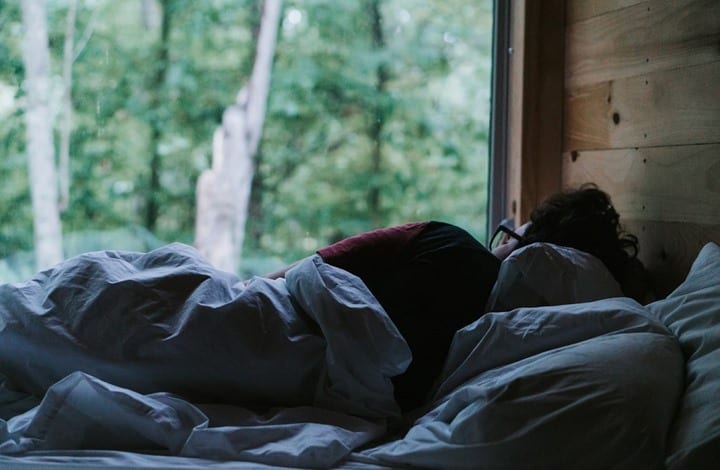
Know about healthy sleep according to your age?
Know about healthy sleep according to your age?
Your sleep needs change over the years. The amount of sleep you need to stay healthy, alert and active depends on your age and varies from person to person.
In this context, new research revealed the optimal duration of sleep at night in middle age and in advanced age.
7 watches
And he found that about 7 hours of sleep is the ideal rest at night, as insufficient and excessive sleep is associated with a poor ability to pay attention, remember and learn new things, solve problems, and make decisions, according to "CNN".
The researchers also found that 7 hours of sleep is associated with better mental health, as those who sleep for shorter or longer time have more symptoms of anxiety, depression, and worse overall health.
Researchers from China and the United Kingdom analyzed data from 500 adults aged 38 to 73 who were part of the UK Biobank, a government-backed long-term health study.
Study participants were also asked about their sleep patterns, mental health and well-being, and took part in a series of cognitive tests. Brain imaging and genetic data were available for nearly 40 study participants.
Other research has found that older adults who have great difficulty falling asleep and frequent nighttime awakenings are more likely to develop dementia or early death from any cause, while sleeping less than 6 hours per night is linked to cardiovascular disease.
deep sleep disorder
One of the reasons for the link between lack of sleep and cognitive decline may be deep sleep disorder, during which the brain repairs what the body has been exposed to during the day and enhances memories. Lack of sleep is also linked to a buildup of amyloid, the main protein responsible for tangles in the brain, which is one of the characteristics of dementia.
The study also reported that long sleep duration can result in poor quality interrupted sleep.
'look complicated'
For his part, Jianfeng Fang, a professor at China's Fudan University and author of the study published in the scientific journal "Nature Aging", said in a statement: "While we cannot be certain that too little or too much sleep causes cognitive problems, our meta-analysis, which followed individuals for a longer period of time, seems to support this idea".
He added, "The reasons why older people suffer from poor sleep appears to be complex, influenced by a combination of genetics and the structure of our brains."
“Sleep is necessary”
Longer sleep durations have been associated with cognitive problems, but the reason is not entirely clear, said Dr. Raj Dasgupta, a spokesman for the American Academy of Sleep Medicine and associate professor of clinical medicine at the Keck School of Medicine at the University of Southern California.
Dasgupta, who is not involved in the research, pointed out that "this sets a mark for a future study and the search for a treatment," noting that "sleep is necessary as we age, and we need the same amount of time necessary for young people, but it is difficult to achieve this."
Strong conclusions likely
The limitation of the study is that it only assessed the participants’ sleep duration in total, without adopting another measure of sleep quality, such as waking up during the night. Participants reported how many hours they slept, as sleep duration was not measured objectively.
However, the authors said that the large number of people involved in the study meant that its conclusions were likely to be strong. And they explained that the researchers' findings indicate that it is important that the optimal sleep period be around 7 hours, consistent.
The study also showed a link between excessive sleep, lack of sleep and cognitive problems.
“big contrast”
But Russell Foster, a professor at Oxford University and director of the Sir Jules Thorne Institute of Sleep and Circadian Neuroscience, who was not involved in the study, cautioned that this link was not based on cause and effect. He pointed out that the study did not take into account the health status of individuals, and that short or long sleep may be an indication of suffering from health conditions related to cognitive problems.
He also added that taking an average of 7 hours as an ideal amount of sleep "ignores the fact that there is a large variance between individuals in terms of sleep duration and quality," explaining that too little or too much sleep may be completely healthy for some individuals.
He concluded: “The duration of sleep, the best times to sleep, and the number of times we wake up during the night vary greatly between individuals, and as we age,” stressing that “sleep is dynamic, and there is a variance in sleep patterns, and the main thing is to assess each one of his needs.”






